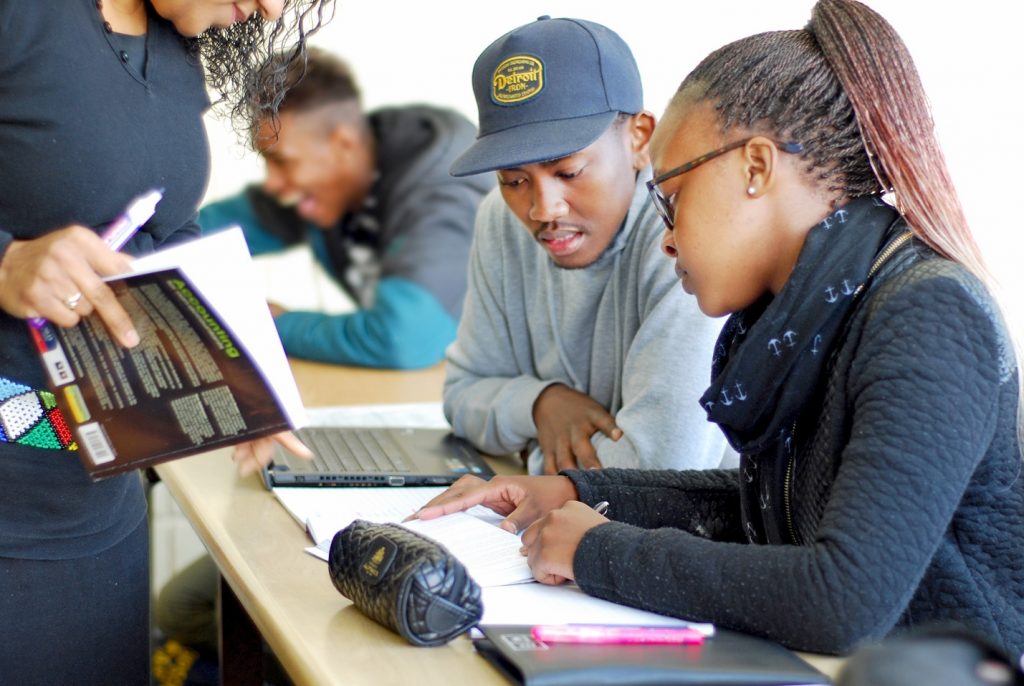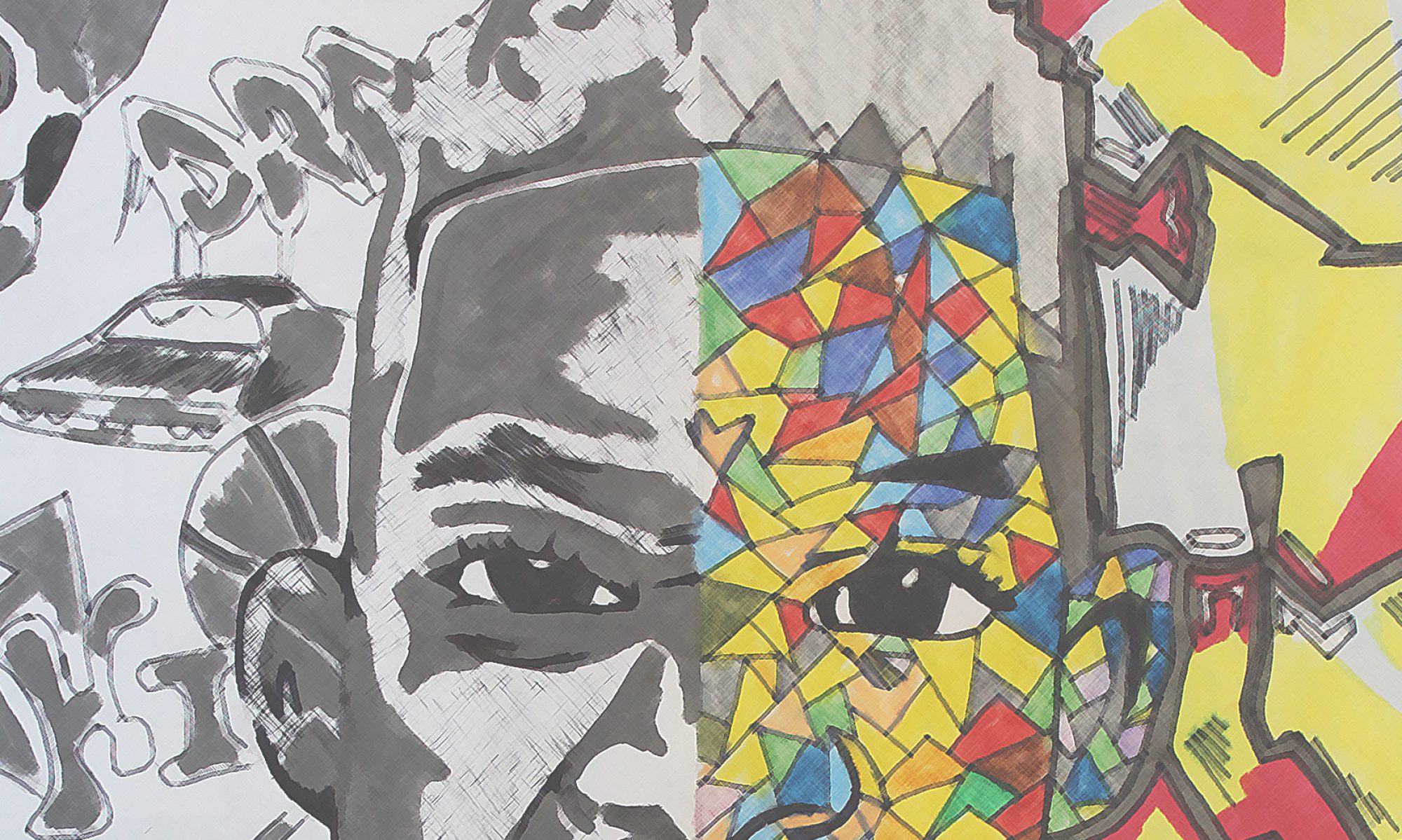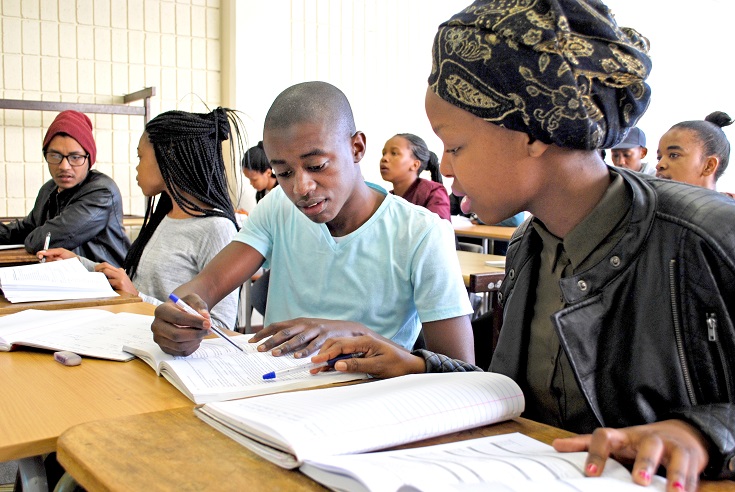
Introduction: the importance of shifting attention onto teaching and the teacher in extended programmes
Lynn Coleman, Cape Peninsula University of Technology
This chapter makes the case for the importance of lecturers’ reflective insights about their teaching practices and its contribution towards enhancing scholarly understanding about teaching and learning in higher education. It also introduces the extended curriculum programme domain and highlights its significant contribution within the South African higher education landscape. A description of its structural features and curriculum models are also presented, before a overview of the different chapters is provided .
Building a community of practice in an extended curriculum: the intervention programme
Amaal Abrahams, Elmi Badenhorst, Busayo Ige,University of Cape Town
This chapter describes how the pedagogic approach underpinning the extended curriculum offering in a Health Sciences faculty attempts to offset the discomfort students often feel when they have to join this intervention. Their reflective enquiry is able to shed light on the extent to which the internal pedagogic model, which is built around the notion of supporting a community of practice, has been effective in mediating and supporting students’ transition to this extended curriculum programme.
“Teaching differently takes a lot of planning”: Shifting discourses of writing in a Communication classroom
Megan Alexander, Cape Peninsula University of Technology
The central theme of this chapter is on creating opportunities for student participation in a Communications classroom at the university of technology extended curriculum programme. The author subjects a previous action research study to further critical review and in so doing interrogates the discourses of writing that informs her pedagogies. She is able to show how institutional discourse act as a barrier against more transformative approaches she wishes to introduce in her classroom. Such approaches would more readily recognize the linguistic and other resources students bring along to the learning environment.
Autoethnography and critical reflection as pedagogical practice in the ECP classroom
Taryn Bernard, Stellenbosch University
This chapter the author highlights how her identity as a critical applied linguists is challenged by the curriculum dictates that foregrounds a decontextual approach to the teaching of academic literacies to second year extended curriculum students. The author uses an autoethnographic approach to harness her reflective insights into her own university learning trajectory. She shows how these methodological tools has allowed for a more sensitive understanding of her students’ experiences of her academic literacies class.
Releasing hope: transforming the lecturer role in an extended commerce course
Rodrique George, University of the Western Cape
The author in this chapter is concerned with how his position as the ‘all knowing’ expert impacts on student participation and belonging in his classroom. He subjects a formative feedback strategy employed in an extended curriculum classroom to deeper critical reflection and considered how vulnerability can be a source of insight that drive pedagogic change
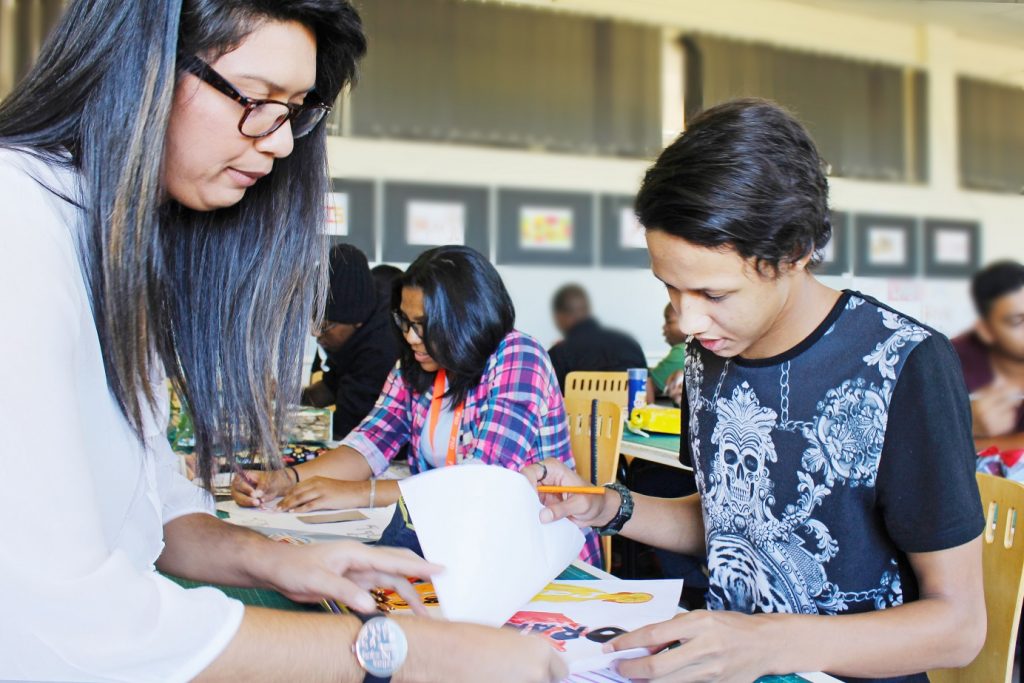
Narratives of disruption: exploring the identities of Design teachers
Cheri Hugo and Amanda Morris, Cape Peninsula University of Technology
This chapter describes the extended curriculum environment of a Visual Design diploma course at a university of technology. The authors raise their concern about the intransigence of deeply entrenched Eurocentric conceptualisations of their field and in particular the consequences this holds for their own identity construction and those of their students. In this chapter, the authors reflective activities lay bare the tensions raised by attempts to infuse their teaching practice with decolonization theories.
Reflecting on teaching in ECP: Insights, lessons and on-going tensions for the contemporary university lecturer
Kibbie Naidoo , University of Johannesburg and Lucia Thesen, University of Cape Town
This chapter draws on a close meta-reflection and review of the different chapters in the book by two experienced higher education scholars. They tease out a series of overarching themes reflected in the different chapters in the collection. Through this thematic analysis they offer points of significance and lessons the wider university community might gain from the reflective inquiries and understandings of teaching presented by the authors in the book.
Protecting the learning space: reflective insight about the role of academic administration in extended programmes in the Science
Gwen Raitt, University of the Western Cape
This chapter introduces the reader to an academic literacies course located in a Science Faculty extended curriculum programme. The main intention of this subject is to offer an integrated approach to academic writing and communication development within a disciplinary context. However, this subject aim has created a unique re-consignment of the role of lecturer. Through this case study the curriculum and oversight role of the co-ordinator is explored and how this function is integral to ensuring the internal academic integrity of the course.
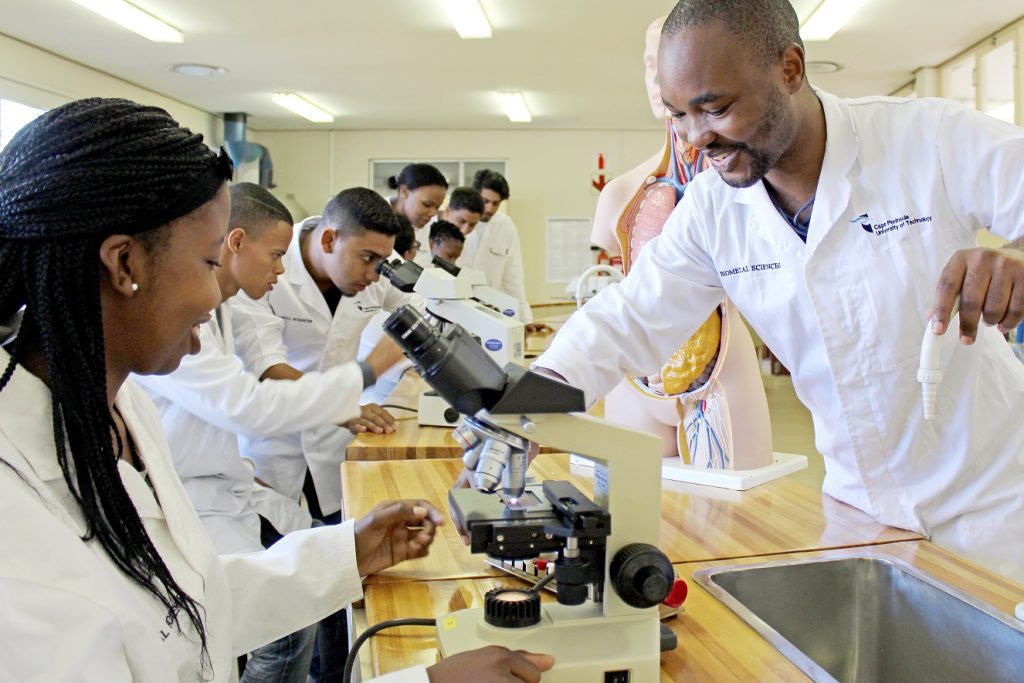
Constructing the ECP lecturer as care giver and receiver through an analysis of student reflective essays
Sean Sampson and Moeain Arend, Cathy Hutchings, Aditi Humna, Gideon Nomdo, University of Cape Town
This chapter describes the rich institutional history of the augmenting academic literacies course offered at this research-intensive university. Pre-empted by their contemporary institutional context, the authors use the notion of pedagogy of care to re-interrogate how this conceptual framing positions their lecturer identity as that of care-giver. As a result of their reflective analysis they call into question the validity of this identity description and show how in their classroom students are also able to take on the role of care-giver.
Shifting the power boundaries in a physics class
Dale Taylor, University of Cape Town
In this chapter the author offers an honest interrogation of how the powerful status of Physics as a discipline creates a relational and lower power differential for students. Her goal in her ECP classroom is to subvert these imposed power boundaries. She presents an analysis of how through her teaching practices she has been able to offer students a different view into the discipline and also shifts the way in which they understand the discipline and the role of the teacher in their classroom.
Dealing with anxieties associated with quantitative literacy learning in extended curriculum classrooms
Mark Winter, University of Johannesburg
Anxiety associated with learning mathematical and quantitative literacies is the focus of this chapter. By outlining how quantitative reasoning is positioned as an especially prized ability in the university, the author’s describes a reflective review of his attempts to offset the anxiety experienced by his extended curriculum students who have performed poorly in a qualitative literacies course. As a result of this reflective activity he is able to reconsider of the causes of such anxiety and also devise more responsive ways to support students to become more successful in this subject.
